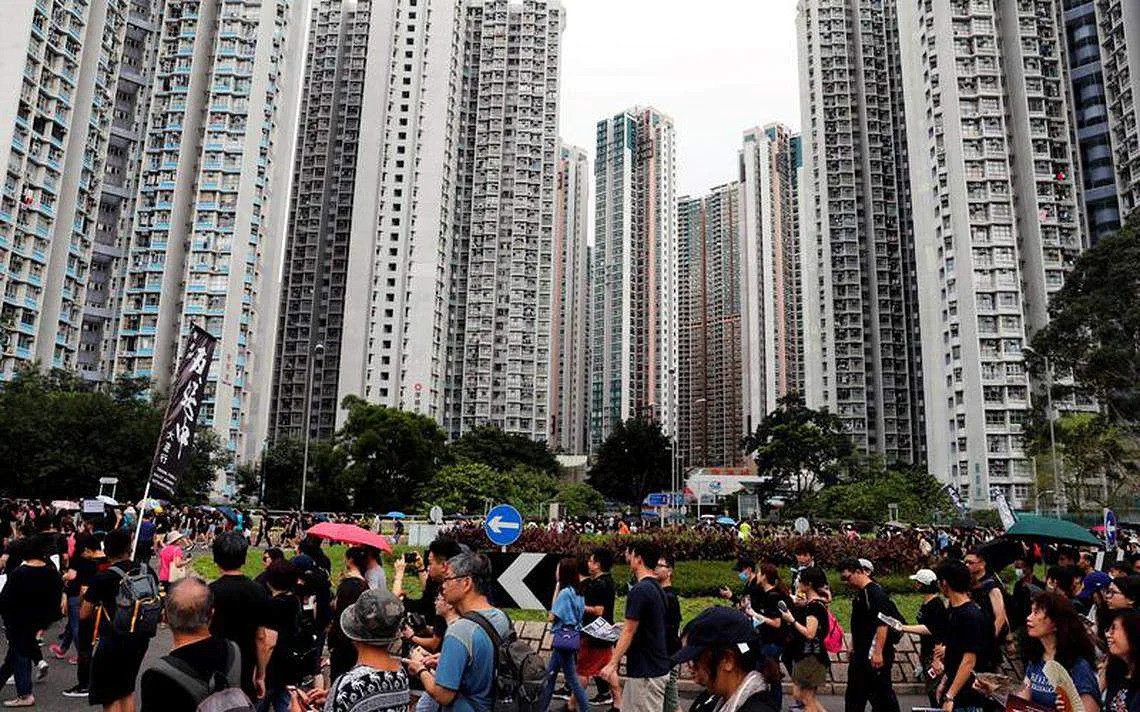Rising interest rates in Hong Kong are pushing up costs for homeowners and threatening to drive down prices in the world’s most expensive housing market.
With the Federal Reserve hiking rates aggressively and Hong Kong forced to follow, consumers are being saddled with higher debt, another drag on an economy that’s struggling to rebound. Analysts at Citigroup Inc. and Moody’s Analytics expect demand for home loans to fall, cooling property prices further.
Higher Rates
Hong Kong’s Hibor-linked mortgage rate is on the rise again
Mortgage rates are linked to the city’s interbank market rate, known as Hibor. For a homeowner with a 30-year mortgage loan of HK$5 million ($640,000), monthly repayments can rise by 12.8% if the Hibor hits 1.2%, according to mortgage consultant mReferral Mortgage Brokerage Services.
The one-month Hibor this week climbed to 0.52%, the highest since September 2020, while the 12-month rate hit 2.85% on Wednesday, the highest since 2008.
“The rising interest rates have played a part in cooling what was a very hot property market back in 2021, with prices down from their historical peaks,” said Moody’s Analytics economist Heron Lim. Prospective homebuyers will be deterred from buying homes and “on the whole, rising interest rates will cool the market,” he said.
Lim expects the one-month Hibor to rise to 2% by the end of this year.

Home prices have remained relatively resilient recently, falling just 1.1% since the start of 2022. However, the outlook is gloomier, with Goldman Sachs Group Inc. forecasting home prices will drop by about 20% over the next four years. Centaline Property Agency Ltd. expects resale transactions to reach 38,000 in 2022, only 73% of 2021 figures.
The pressure on mortgages traces back to the way Hong Kong handles monetary policy. Because the local dollar is pegged to the greenback, the Hong Kong Monetary Authority has to raise interest rates in line with the US Federal Reserve — and the HKMA will almost certainly do so for the third time this year on Thursday, given the Fed’s likely rate hike of 50 basis points or more.
So far, banks including HSBC Holdings Plc and Standard Chartered Plc have maintained their best lending rates even after the HKMA hiked this year, given the abundant liquidity in the financial system. But Moody’s sees an increasing chance that the banks will eventually have to adjust upward, pushing up borrowing costs for customers.
Stress Tests
Financial Secretary Paul Chan highlighted those concerns last month when the HKMA raised its benchmark rate. The rate hike “may pressurize the mortgage repayment burden of some property owners, as well as their worries about livelihoods,” he said.
Adrienne Lui, an economist at Citigroup, said rising interest rates “will prompt property investors to take a cautious approach when they try to buy,” damping sentiment in the housing market. However, she doesn’t see a material impact on consumption in the city, given that well-paid earners continue to drive the high-end retail market, while government spending vouchers will help boost the mass retail market.
Most existing homebuyers should be able to cope with higher rates, given the stress test that they have to go through when applying for mortgage loans, said Eric Tso, chief vice president at mReferral. Hong Kong’s first-time homeowners need to ensure their monthly repayments do not exceed 60% of their salary when interest rates rise by 3%. That means jobless homeowners would likely be the most affected by rising rates, Tso added.
Even so, the financial stress on homebuyers capable of repaying their mortgage loans is significant. The average mortgage amount in the city has been rising steadily over the past few years as interest rates remained low and as the city loosened requirements for making down payments.
Source- Bloomberg





